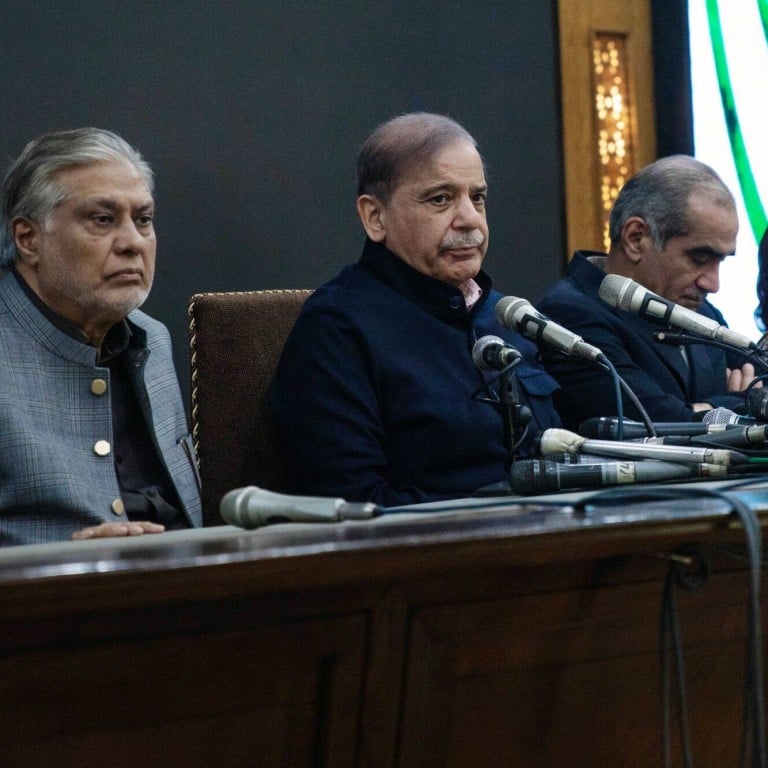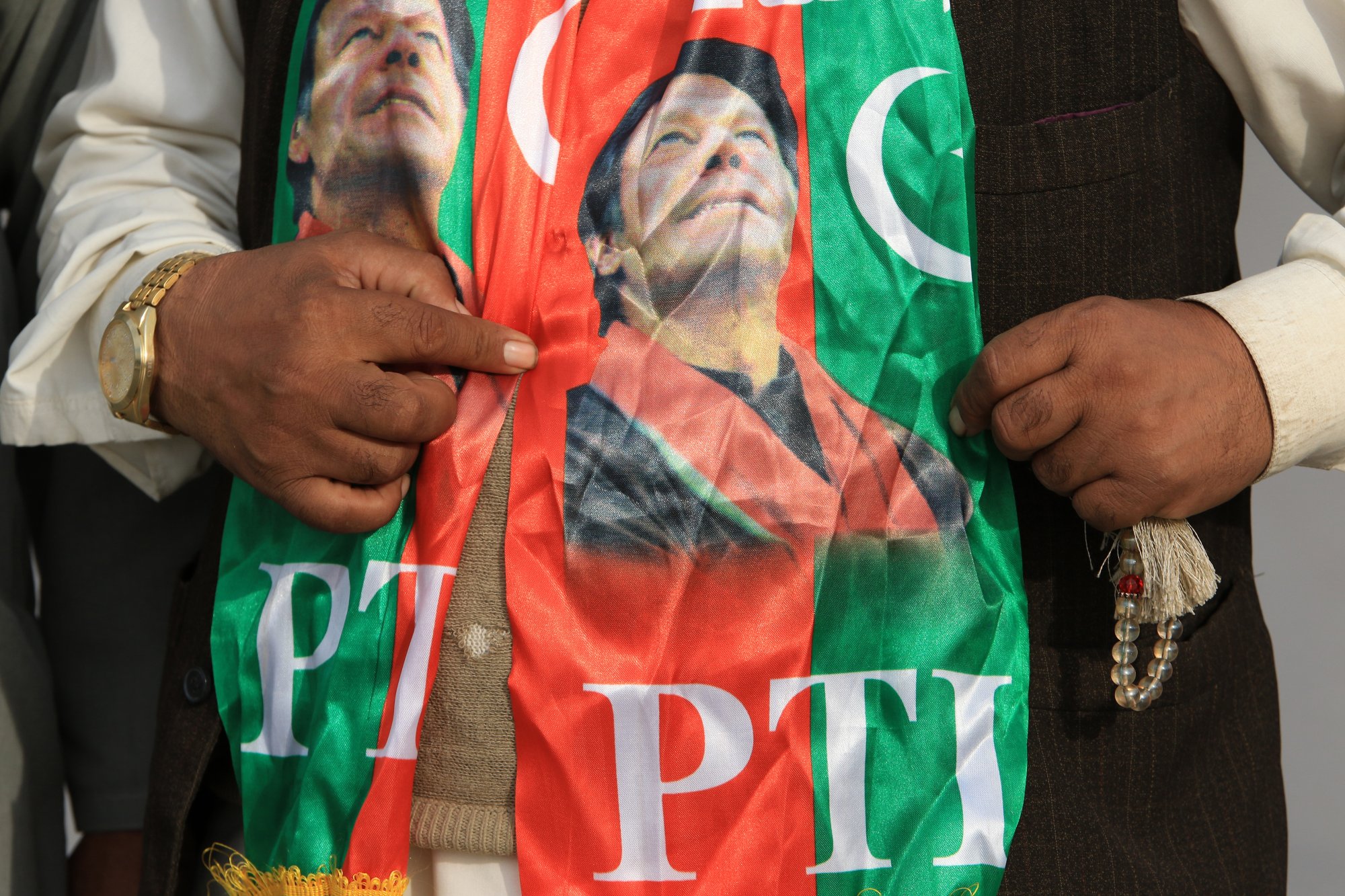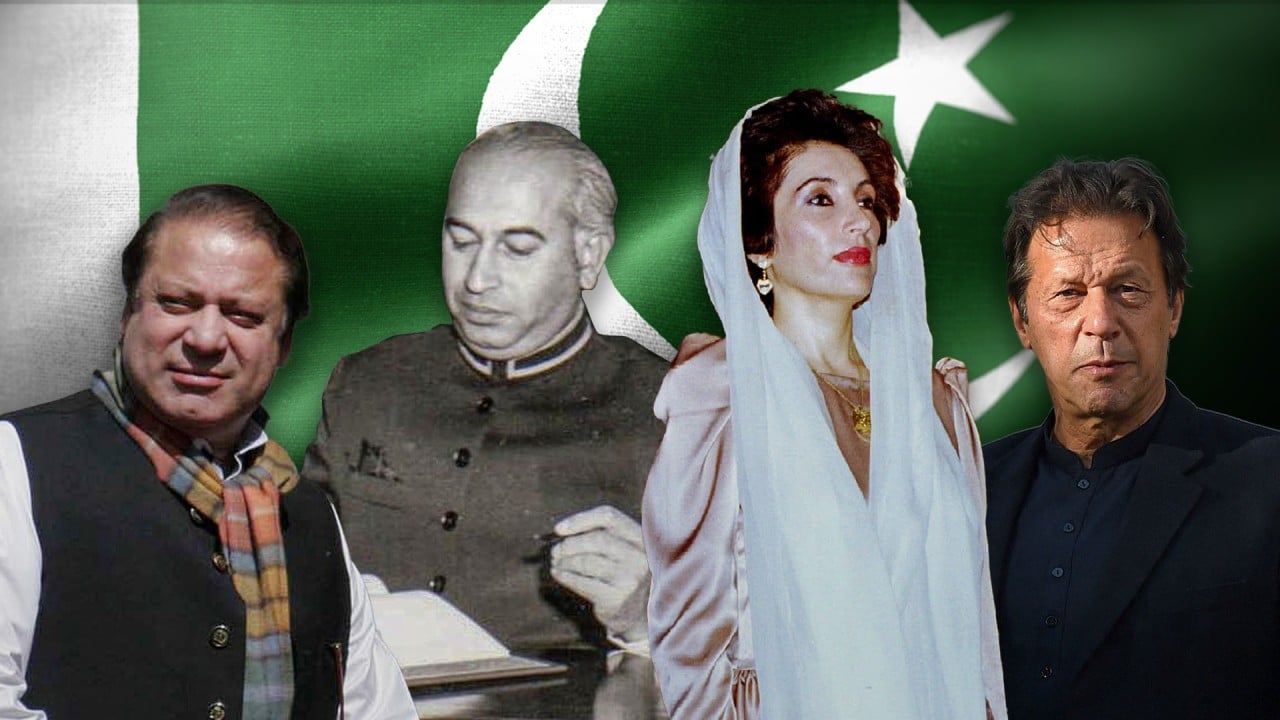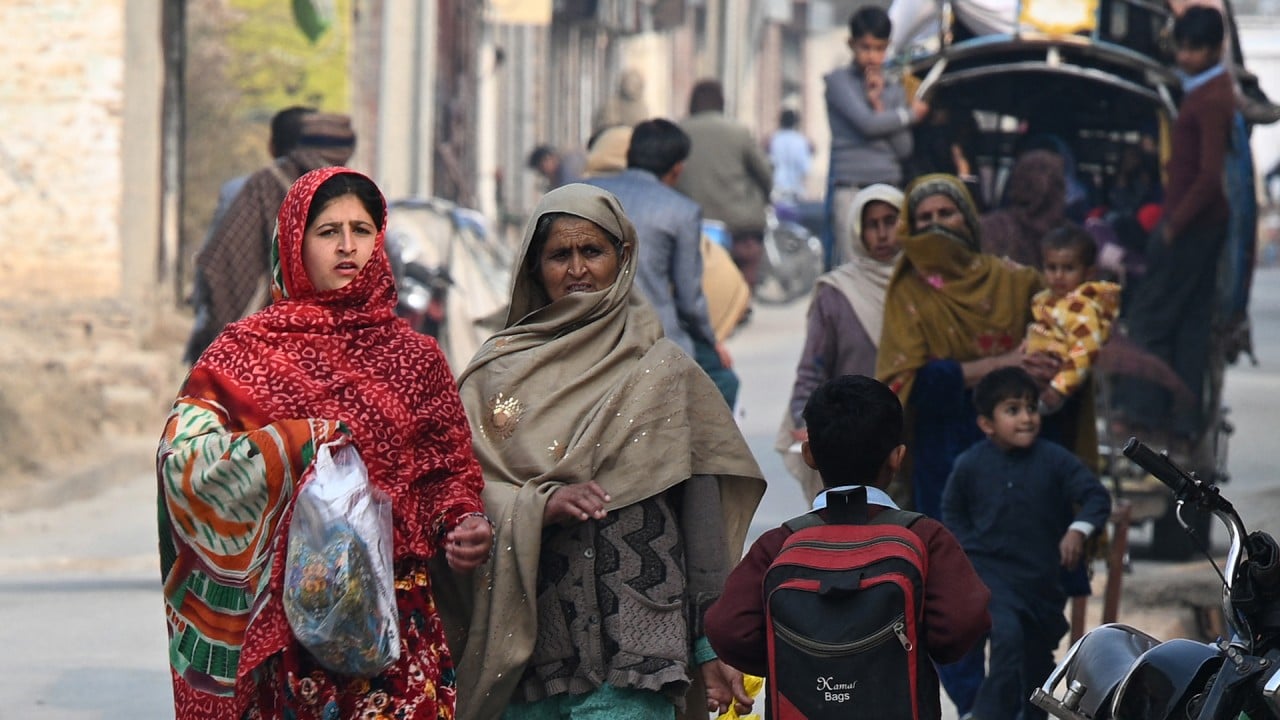
Why Pakistan’s unstable coalition won’t faze China, IMF: ‘everyone understands army is in charge’
- The Pakistani military’s stern oversight will also be reassuring to the country’s other major creditors Saudi Arabia and the UAE, analysts say
- A weak coalition led by ex-PM Shehbaz Sharif and the military’s preferred parties is also what the country’s establishment wished for
“There are plenty of reasons to think this government won’t last long,” said Michael Kugelman, director of the South Asia Institute at the Wilson Centre, a Washington-based think tank.
There is friction between the two biggest partners in the incoming coalition – the Pakistan Muslim League-Nawaz (PML-N) of three-time former prime minister Nawaz Sharif and ex-president Asif Ali Zardari’s Pakistan People’s Party (PPP).
The new government would also be under intense pressure from jailed ex-leader Imran Khan’s Pakistan Tehreek-e-Insaf (PTI) party, which backed independent candidates comprising the single largest grouping in the National Assembly.
Pakistan’s election results a wake-up call for its military
Few Pakistani governments have served out their full terms and no prime minister ever has. Honeymoons have often given way to “ugly divorces” between the civilian and military leaderships, Kugelman noted.
Additionally, the new multiparty coalition will be “unwieldy and weak, and led by parties that don’t get along”.
“This could all doom it to failure,” he warned.
However, Kugelman said while Pakistan needed renewed, multi-year financial help from the IMF to prevent it from defaulting on its international debt and trade payments – like Sri Lanka did in 2022 – the prospects for a new deal “won’t be damaged by the election controversies” as long as the Washington-based lender “believes Islamabad is committed to seeing through economic reforms”.
During the new coalition’s first few weeks in power, the civilian and military leaderships are “likely to be of one mind in supporting reforms, though for political reasons, [it] may drag its feet and resist new austerity measures”.
For both political and economic reasons, the government and military will have a “strong incentive” to “ensure unrest over widespread electoral fraud is limited”, Kugelman said.
Pakistan set for coalition after troubled election, as Sharif trails rival Khan
According to veteran Pakistani political journalist Nusrat Javed, the leaders of the PML-N and PPP only agreed to join hands under duress from the military establishment.
“They were given an ultimatum to either agree on a candidate for prime minister by Wednesday or have one foisted upon them,” he said in a recent television appearance.
Late on Tuesday, they chose deputy PML-N leader Shehbaz Sharif, who led a similar coalition government that replaced Khan’s PTI administration after a vote of no-confidence in April 2022 and held office until last October.
“In the end, Pakistan’s establishment got exactly what it wanted: a weak coalition led by the military’s preferred parties, and susceptible to the military’s influence,” Kugelman said.
If Shehbaz does head the next Pakistani government, “that could give it a lifeline”, given that he historically has had good relations with the military, Kugelman added. But a pliant leader “may not be enough” to ensure the government’s survival, according to Kugelman, especially if the coalition becomes increasingly strained.

General understanding
While concerned by the prospect of greater instability, the IMF and foreign investors are not likely to be fazed by Pakistan’s domestic political shenanigans, analysts say.
The IMF is “well aware who’s in charge, and based on what we have seen during the last six months, it appears they don’t have any issues with that set-up”, said Mattias Martinsson, chief investment officer of Tundra Fonder, a Swedish asset management firm focused on frontier and emerging markets.
“Given where we are, in terms of sentiment and valuations, I think there are very few foreign investors that were expecting anything other than what now appears to be the outcome,” he said. “Everyone understands that the army is in charge. Whoever formally represents them carries less significance.”
Financial markets are “cynical, and reward stability and predictability”. It appears the market has “got that in some form, thus I expect an improvement from here”, albeit from extremely low levels, Martinsson added.
The Pakistani military’s stern oversight will also be reassuring to the country’s other major creditors China, Saudi Arabia and the United Arab Emirates (UAE), analysts said.
Although greatly concerned by the legitimacy and longevity of the new Pakistani government, they are expected to continue supporting it with financial assistance and through strategic investments.
China “wants a strong, cohesive and stable Pakistan which can best partner with it as a reliable ally in South Asia”, said Mustafa Hyder, executive director of the Pakistan-China Institute in Islamabad.
29 killed, 40 injured after 2 attacks hit Balochistan before Pakistan election
“A Pakistan with fault lines is a Pakistan that China would definitely be concerned about” because it would mean further inconsistency of policies and instability.
“It would mean a not-as-robust partnership because of Pakistan’s potentially fractured domestic body-politic,” Hyder said.
But he added that “the question mark” about the sustainability and longevity of the incoming government “should not impede China’s perspective on supporting Pakistan”, financially or otherwise, because its relationship “is with the state of Pakistan”.
Irrespective of whichever government is in Islamabad, there “is a clear consensus” in Pakistan, both in the civil and in the military leadership, “on our relationship with China”, according to Hyder.
China has financed and built about US$28 billion of mostly power generation and infrastructure projects under CPEC since 2016. They were instrumental in overcoming Pakistan’s massive power shortages and improving overland connectivity between the Chinese-operated port of Gwadar on Pakistan’s western Indian Ocean coast and the Xinjiang region.
Hyder said Beijing would be encouraged by the expected reappointment as prime minister of Shahbaz, who “has been a force-multiplier for CPEC” since the programme was launched.
Concerns in the Middle East
Like China, Saudi Arabia and the UAE are “undoubtedly somewhat unnerved by the tumultuous and controversial election with its dubious results”, said Hussein Ibish, a senior resident scholar of the Arab Gulf States Institute in Washington.
The disputed Pakistan election result “leaves too much room for instability” among Pakistan’s civilian political class and government “for the tastes of its stability and security-minded Gulf Arab allies”.
Pakistan has long-standing agreements with Saudi Arabia and several of its neighbours to militarily intervene if its territorial integrity were to be endangered by any foreign power.
Ibish said the Gulf monarchies were “highly supportive” of the regional and global status quo, and “do not welcome unrest, particularly in a vital nuclear power” in the Indian Ocean basin, which was also a leading trade partner for them.
Pakistan and India possess formidable nuclear arsenals of similar size.
But anxiety about Pakistani politics “is nothing new” to the Gulf Arab states, he said.
Instead, there is a sense among them that if the situation in Pakistan “really do start to go off the rails”, a return to military rule is “always a distinct possibility”.
As Pakistan pins murder-for-hire plots on India, is their fragile peace at risk?
That would “not necessarily be unwelcome” in Gulf Arab countries that prefer “stable and predictable autocrats over the chaos” produced by polarised and corrupt democratic civilian systems such as Pakistan’s, Ibish said.
So their concerns about the longevity of the incoming Sharif-led coalition government “won’t necessarily” make Riyadh and Abu Dhabi reluctant to extend further financial assistance to Islamabad, or to go ahead with planned strategic investments in Pakistan’s state-owned firms coming up for privatisation.
“That the Pakistani military has served as a backstop against utter chaos, and presumably would do so again if need be, serves as a reassuring idea” that suggests investments even directly within Pakistan itself “will not be fundamentally threatened or altogether lost”, Ibish said.
Financial assistance “may be smiled upon” by the Gulf Arab states “as a way of helping to stabilise Pakistan”, which will be in their interests, he said.
“Much depends on Pakistan’s policies as well as perceived stability,” said Ibish. “If Pakistan continues to act as a largely helpful player, it can expect ongoing support at a fairly high level, at least comparable to recent levels.”
The regional impact of Pakistan’s muddled election would be modest, analysts said.
Foreign policy is in the military’s ambit so Pakistan’s approach to its neighbours after the next government comes to power will be “tethered more to what the army wants to do than to what the new civilian leadership wants to do”, according to Kugelman.
India is currently focused on its general election in May and “not at all interested” in outreach to Pakistan, no matter who leads the next government in Islamabad, he added.
Likewise, Pakistan’s border tensions with Afghanistan and Iran “won’t be impacted” by the election.
Still, the next Pakistani government will have “a major challenge on its hands” trying to manage those tensions even while dealing with severe economic stress and fending off pressure from a PTI-led opposition, Kugelman said.



